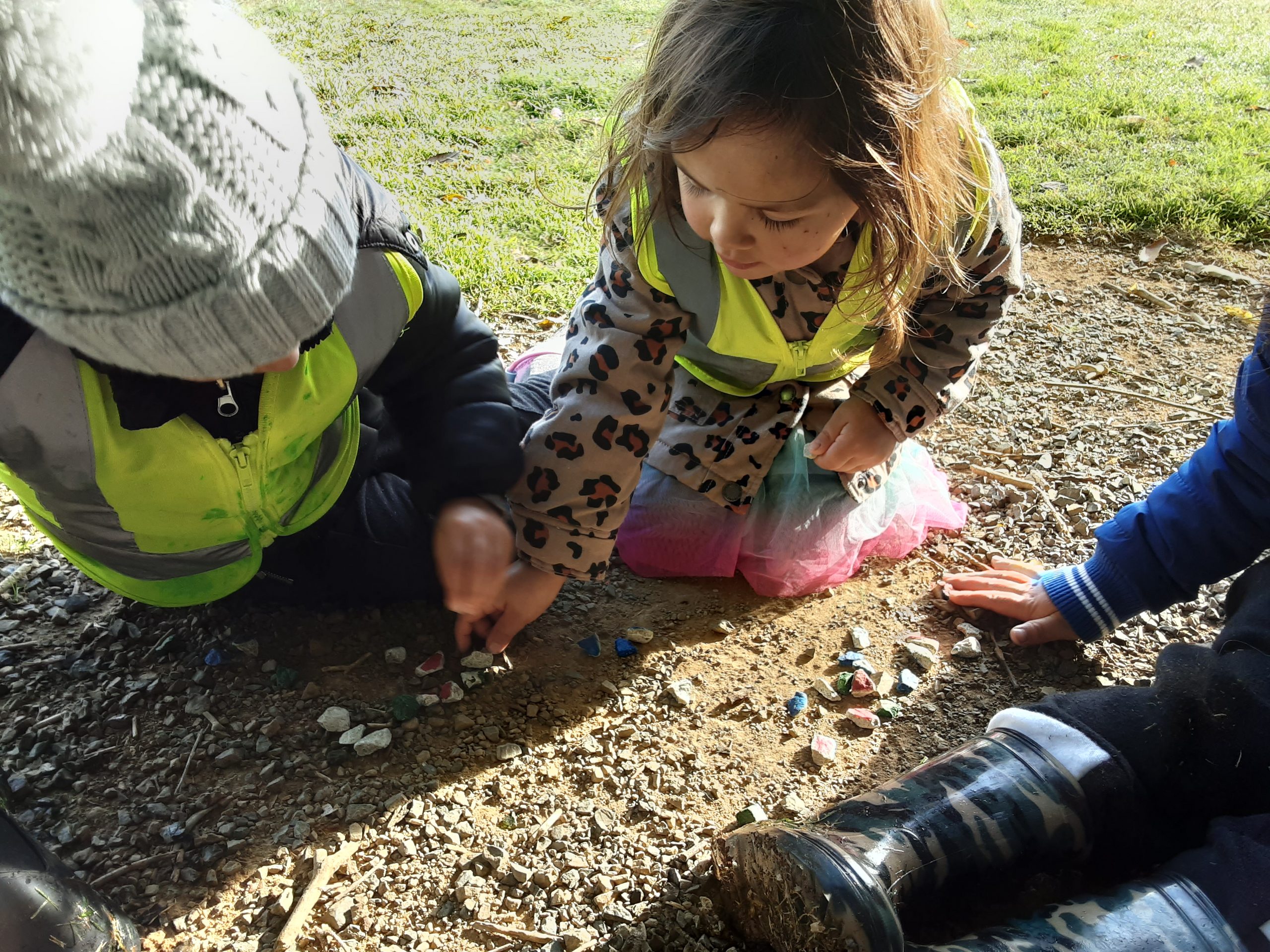Physical Health
When children have regular time outdoors, including forests, parks, and playgrounds, they have opportunities to release stress, play vigorously, and directly explore nature, which in turn provides physical and psychological benefits (Frost, Physical Health and Motor Development 2010; Jacobi-Vessels, 2013; Louv, 2005).
In nature, exposure to germs for your child’s developing immune system is of great advantage. Microbial exposure and increased microbial burden is beneficial for wellness. (Gilbert, J. Knight, R. 2017)
Mental Health
Having just 20 minutes outdoors helps us to regulate our emotions by significantly reducing our cortisol levels. (Mary Carol R. Hunter, Brenda W. Gillespie, Sophie Yu-Pu Chen, 2019)
Having regular contact with natural outdoor environments plays a pivotal role in promoting children’s health and wellbeing. (Armitage, 2009; Jacobi-Vessels, 2013; Kernan & Devine, 2010; Louv, 2005; Robinson & Wadsworth, 2010)
Managing Themselves and Risky Play
When playing outdoors children are presented with many situations where they need to manage themselves and the risks they take. When it’s cold and wet they also develop awareness around what clothing they need to have on in different scenarios. Risky play helps children to learn to manage their own safety and move around comfortably (Knight, 2009).
Enhanced Creativity
Play in nature is especially important for developing capacities for creativity, problem solving and intellectual development (Kellert, 2005). There is freedom in nature that comes without scripts and allows for imagination in very special ways.
Connection with Nature
Research has shown that empathy with and love of nature grows out of children’s regular contact with the natural world. Hands-on, informal, self-initiated exploration and discovery in local, familiar environments are often described as the best ways to engage and inspire children and cultivate a sense of wonder. These frequent, unstructured experiences in nature are the most common influence on the development of lifelong conservation values. (DOC, 2011)
Sensory Input
Rain is a unique sensory experience. Getting sensory input in all types of weather not only helps strengthen neural pathways in the brain, but it also helps us to learn that it can be an enjoyable experience and shouldn’t be avoided thus promoting a healthy lifestyle.
It’s also good to recognise that for some children on a rainy day, if they are kept inside it can become a sensory overload so there are real benefits around self-regulation on raining days for children to be able to go outside.
Jean Ayres initially developed an understanding sensory integration theory and suggests that when multiple senses are utilised together it creates more connections in the brain leading to improved sensory processing, regulation, and learning.
Resilience
Resilience is the ability to bounce back from challenges or difficulties. Some might say that going outside in the rain is a challenge. By providing opportunities for children to experience little challenges along the way, we help them to build up a foundation of knowledge about themselves and what they are capable of. So when they are faced with future challenges they have knowledge and skills they can call upon.
Some research from Chawla suggests that children experience peace, calm, and relaxation in their green schoolyards and gardens, but they also experienced opportunities to feel competent and opportunities for the development of supportive social relationships, which are important protective factors for resilience (Chawla, et al., 2014).
Nature is the Teacher
Nature is a science lab! And when it rains there are so many different things to observe and learn about. Water sustains life and supports all eco-systems AND it can magically disappear – where does it go? What does it taste like? How heavy is it? There is so much to learn about rain and water but to really know about it, it has to be experienced. Remember too, that there is much more to nature than rain – it doesn’t stop there!
Outdoor Play Every Day is great for our children’s overall health and well-being. It helps them develop into capable, confident humans and gives them a variety of skills to help them navigate on their journey through life.
When it comes to the weather and play, it doesn’t matter if it’s sunny or raining, the benefits are still the same. There is no discimination.
Remember ‘There is no such thing as bad weather, just bad clothing’.
So next time it’s raining, remind yourself of some of these benefits, dress for the weather, Take Them Outside and Let Them Play!




